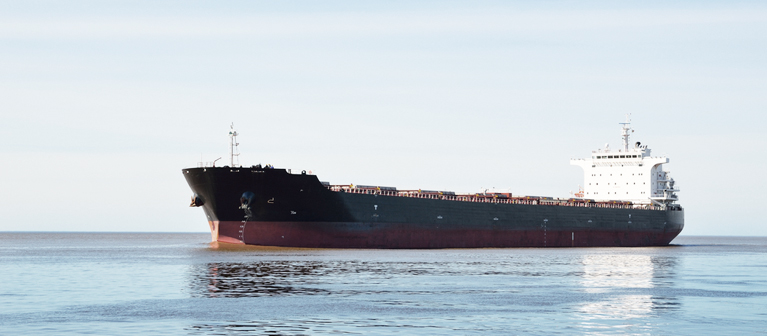
Offshore/Maritime Injury
Injured While Working Offshore?
The Jones Act is a federal law, also known as the Merchant Marine Act of 1920, which governs maritime commerce, the rights of crew members, and the maintenance requirements of boats and shipping operations.
As per the Jones Act, negligence claims can be brought when an injury results from the careless acts of an employer or coworker. The ship owners could also liable if an accident is caused by the unsafe condition of their vessel.
The Jones Act protects crew members of a vessel in the event they are injured. This law applies to inland river workers and offshore crew members who work on crew boats, dredges, chemical ships, diving vessels, cruise ships, tankers, jack-ups, semi-submersibles, barges, drilling rigs, tugboats and towboats, cargo ships, fishing vessels, and crew offshore supply vessels.
Offshore/Maritime Injury
Injured maritime employees are entitled to a variety of benefits under the Jones Act and General Maritime Law. First, they are entitled to compensation for medical expenses, both those already paid and any future costs of recovery. Medical expenses may include the costs of future surgery, ongoing rehabilitation, and transportation costs. Those who cannot return to work are entitled to past and future lost wages as well as costs for vocational retraining. Because serious injuries severely limit the types of jobs available to the victim, the Jones Act also allows damages for lost earning capacity. Additionally, injured workers are entitled to payments when they are temporarily or permanently disabled. In cases where the injury is caused by negligence, the victim is entitled to damages for pain and suffering. Because recovering under the Jones Act is complex, it is important to seek the counsel of a knowledgeable attorney.
Maritime Injury: Maintenance And Cure
Maintenance and Cure is a seamen’s right to medical treatment and living allowance following an accident aboard a ship, or another offshore vessel.
Maintenance is a daily living allowance paid to a seaman while he is recovering from his injury or illness. Maintenance payments continue until a seaman has reached maximum medical improvement or until he is fit to return to duty at his previous level. There is no set daily rate for maintenance, and the rate of maintenance may vary from case to case. Typically maintenance rates are set by employers very low in the range of $30 to $35 a day. A maintenance rate in a seaman’s employment contract is non-binding with the exception of some collective bargaining agreements.
Cure is a shorthand term used for medical expenses associated with a seaman’s injury or illness. In almost all cases, a seaman’s employer must pay all reasonable and necessary medical expenses associated with a seaman’s injury or illness. These expenses may include doctor and hospital bills, therapy expenses, nursing bills, MRI and CT scans, wheelchairs, diagnostic testing, pain clinics, transportation costs to and from the doctor, and other reasonable medical-related expenses. An injured seaman has the right choose his own doctor. The right to cure continues until the seaman has reached maximum medical improvement. Many employers and marine insurance adjusters attempt to wrongfully terminate a seaman’s benefits before they have reached maximum medical improvement. Where there are conflicting medical opinions about whether or not further medical treatment may improve a seaman’s medical condition, maritime law requires those doubts be resolved in favor of granting further treatment.
If you believe you are entitled to maintenance and cure and your employer denies your claim, the first thing you should do is speak to an experienced maritime lawyer about your situation.
Maritime Injury: Occupational Diseases From Toxic Exposure (Cancers)
Working aboard ships is a risky and demanding occupation. While many injuries are caused by heavy equipment and dangerous machinery on-board cargo ships, tugs, barges, drilling rigs and other maritime vessels, an offshore worker must also be careful of the hazardous chemicals being transported on these vessels. These dangerous chemicals can include benzene, toluene, naphtha, gasoline, xylene, jet fuel and other refined petrochemicals. Many workers are injured due to the inhalation and exposures to these chemical fumes, vapors and the product itself.
The Soares & Albertini Chambers Difference: A Firm That Gets Results
If you are a seaman, the Jones Act, and the general maritime law cover you, and if injured on the job, or made ill on the job, you are owed maintenance and cure benefits. We can help you to receive what you deserve after your maritime injury.
Most personal injury firms are made up of individual lawyers. They may get help from others, such as field experts or investigators, but it’s not often that they keep those resources in-house. Soares & Albertini Chambers maintains a team of professionals that includes more than 35 experienced lawyers, as well as full-time registered nurses and three investigators.
Along with our in-house staff, we also have strong relationships with other experts, as well as photographers and videographers who help document the evidence you need. Establishing negligence is key to the success of any case, and we have more than enough skill and resources to do just that. Our firm has over 40 years of experience and runs like a machine – efficiently and effectively.
Contact Us For A Free Consultation
If you or someone you love has been injured or killed as a result of their work offshore, you may be entitled to the compensation you so rightly deserve.
Contact Soares & Albertini Chambers today for a free, no obligation, consultation. If you are looking for prompt, personal and proven representation for your offshore injury, Jones Act claim or any other Maritime Injury claims, Soares & Albertini Chambers is here to help. Our team of attorneys, specialists, and research associates have the experience and resources to guide you through your legal journey and help you secure the best results possible.
